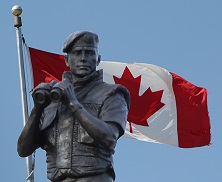True and Fascinating Canadian History
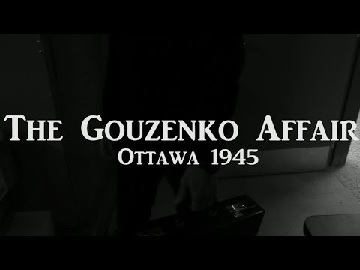
The Mystery of A Mountie
and A Spy He Befriended
by J. J. Healy
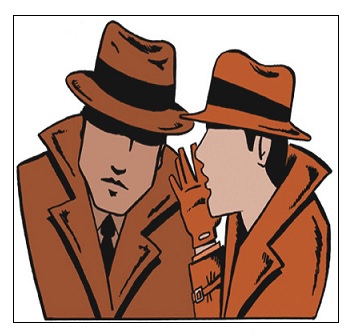
The issue of police accountability aimed both at the individual police officer level, as well as at the organizational level, remains a controversial topic in the minds of a vast number of Canadians. The debate centers around two age old questions; to what degree can the RCMP be trusted, and are they sensitive and well enough schooled in the rights and freedoms of Canadian citizens?
The danger narrows to the critical point where, on occasion, police officers have abused their lawful authority and by doing so have deprived Canadians of their democratic rights; the right of privacy in their homes, the right to be presumed innocent, the right to have access to a lawyer, the right of protection from unlawful search and seizure and so on.

But still the police insist that too much external oversight can hamper legitimate law enforcement efforts -- make timely arrests more difficult and thus allow outlaws to roam freely. Today, their concern takes on even more traction as the police grapple with new threats and violence that target the security of all Canadians. In frustration, the lament can often be heard that policing the streets is quite different, more complex and far more dangerous than pondering legal questions leisurely or forever and a day in the courtroom.
And yet, the criticism of police practices seems not to dry up. Oversight committees, parliamentarians, the press and libertarians all remain skeptical of law enforcement methods no matter how well intentioned the police may express themselves. Concerned citizens too would prefer to keep the police on a very short leash and to shine a spotlight on their every footstep. Citizens often point to the past and especially to criminal investigations that have run amok and which have resulted in wide publicity because the police were overly zealous and made efforts to conduct business in secrecy and to circumvent the rules of reporting and accountability.
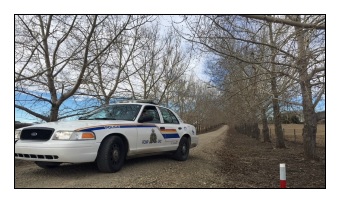
It was the lack of police accountability that hit a high water mark in Canada in the 1970's. A few years earlier, the RCMP had formed its Security Service -- an internal branch which was responsible for domestic intelligence and security for Canada. But shortly afterwards, the RCMP was caught up in a flood of serious accusations which laid out how the RCMP had participated in illegal activities. Individual police officers as well as the RCMP were caught up in the mess. Looking back, perhaps there is a lesson or two for all police officers in The Mystery of the Mountie and A Spy He Befriended.
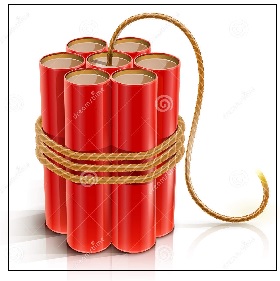
It was reported in 1971, that the RCMP had broken into storage facilities and had stolen an unspecified amount of dynamite. A year later, some of the dynamite was found in Mont Saint-Gréoire supposedly left behind to link the explosives to the FLQ. Meanwhile, the RCMP was accused of illegal break-ins and this revelation prompted the RCMP to admit that it had entered more than 400 premises without pre-authorized judicial warrants since 1970. Revelations of other illegality did not seem to stop.
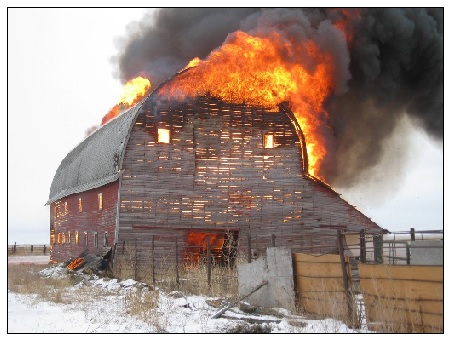
Then in 1974, Corporal Robert Samson was arrested after a bomb had unexpectedly gone off in his hands and, it was about the same time that the RCMP in Québec was accused of setting a torch alight to burn down a barn. In the course of a Royal Commission, the RCMP came clean and admitted to its faults. Later, RCMP Assistant Commissioner Rod Stamler said that the barn-burning operation was "morally wrong and unlawful" and if the police leadership condones such actions, it will lose control of the (police) force."(Palango: 193).
A couple years later when all the dust had settled, it was very apparent to the courts and citizens alike that some changes were quickly needed to lay out clear rules of police accountability inside the RCMP. The urgent call for action came just as the RCMP was enjoying its 100th Anniversary and solid service to Canada; it had served honourably in Europe during WWII, and it had gained the trust of many hundreds of communities across Canada in which the RCMP provided front line policing.
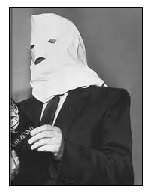
After WWII, the RCMP Secruity Service did not exist and the world of Canadian policing was alot more simple. In the past, whatever had gone wrong in the field of domestic espionage was handled by the Intelligence Branch of the RCMP. Quite unexpectedly one day in 1945, Igor Gouzenko a cipher clerk at the Soviet Embassy in Ottawa contacted the RCMP and asked for their protection. In the very first meeting with Gouzenko, neither the RCMP or the Canadian government realized how significant Gouzenko's defection was or his value to Canada as a new ally.
As it so happened, Gouzenko also carried with him a batch of secret papers that he had taken from the Soviet Embassy. The case, the first of its kind to involve international espionage, the RCMP, the Canadian government as well as foreign governments suddenly awoke Canada to the reality that spies were actively operating on Canadian soil.
Gouzenko turned the secret papers over to the RCMP and, as it turned out, the documents were explosive with details of spies operating within Canadian boundaries; one inside Canada's External Affairs, and another spy in the United Kingsdon High Commissioner's Office. In addition, a number of scientists and other people in positions of trust were found to have passed domestic secrets over to the Soviets.
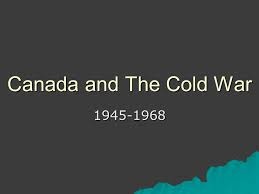
Total secrecy shrouded the whole Gouzenko affair for about a year. It was well known within the RCMP that harm would likely befall Gouzenko and his wife should their whereabouts be discovered. In the midst of the espionage investigation, Mrs. Gouzenko gave birth to a baby and this unique situation required all the more care for secrecy. One of the principle responsibilities of the RCMP was to protect Mr. Gouzenko, his wife and their baby.
Secrecy also had to remain in effect for sufficient time to conduct surveillence and to gather evidence about the spies whom Gouzenko had identified. It was incumbent for the RCMP to operate in such a way that did not raise suspicion among the spies or their Soviet handlers. After several months, timely raids were conducted by the RCMP and all the accused persons appeared before the courts.
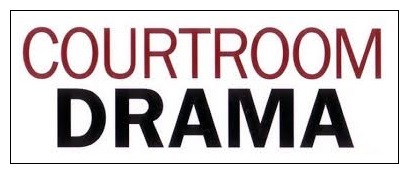
There are a few lessons which all police officers can take from the Gouzenko case. First of all, the RCMP employed acceptable methods of police investigation during the course of its conduct with the Gouzenkos. Equally important is that Canadians do not expect police officers to be involved in any form of illegality. Excuses are not accepted and they will only fall on deaf ears in the courts. Police officers are taught, as a solid rule, that no criminal investigation is so critical that they must resort to means outside the law to gather evidence. The end does not justify the means. In policing most especially, illegality is another form of untruthfulness.
A very select group of Canadian high government officials had to be informed of Gouzenko's plan to defect and its anticipated spill-over effect. The RCMP decided to rely on tested and proven lines of communication within the Department of Justice and The Secretary of State for External Affairs. This strategy proved to be both prudent and wise to prevent the Prime Minister and Cabinet from being caught off guard over an international crisis. Accountability was afforded by RCMP investigators by following this route.
Another accountability mechanism was the Royal Commission. By special authority, an Order in Council was enacted which authorized the RCMP to conduct raids and arrest certain persons. Two judges of the Supreme Court of Canda heard the evidence, looked into the entirety of the RCMP investigation and interviewed witnesses. The conduct of the RCMP throughout the Gouzenko operation in 1945 and its investigational practices were not denounced or criticed in contrast to the many RCMP wrongdoings which arose during the 1970's.
Due to matters of national security, the entire Gouzenko story will likely never be told. Mystery surrounds the degree and the depth of damage done by the spies, and whether or not all the spies were actually caught or whether a few returned to Russia before they were arrested.
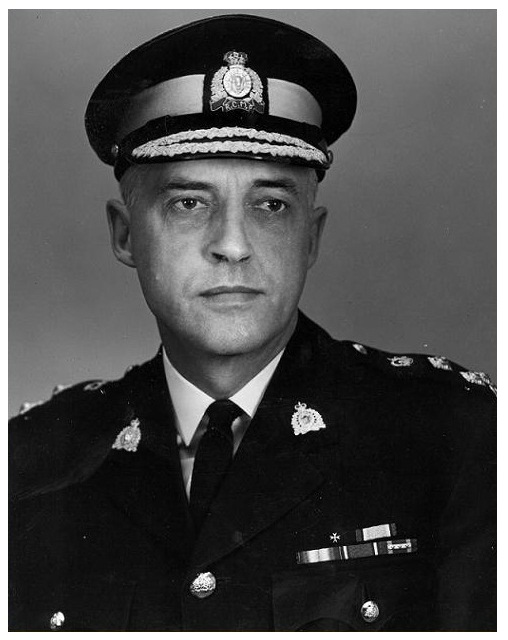
An RCMP Officer by the name of Charles Rivett-Carnac was the lead investigator for the Gouzenko Affair. In his book: Pursuit in the Wilderness, Rivett-Carnac recalled the uneasiness which he felt upon meeting Grouzenko for the first time. Nevertheless over time, a professional bond grew out of their relationship -- one could say an 'odd couple' blend existed -- while one man was a police officer and the other man a spy.
Years and years after the case was over, Commissioner Rivett-Carnac received a note from Mr. Gouzenko in which he expressed his appreciation to the Commissioner. Mr. Gouzenko wrote,
"Assistant Commissioner Rivett-Carnac, Your vision, your great confidence and thoughtfulness made it possible for my family and myself to live and to work in Canada. When I wrote this novel, I often thought of you, and these thoughts were of deepest gratitude. With respect and admiration, Igor Gouzenko." (Rivett-Carnac: 139)
There is little doubt that Gouzenko trusted and admired Commissioner Rivett Carnac and considered him as a true Canadian friend. But, can a police officer ever befriend a spy?" The answer to that question must remain unanswered since it is as dark, deep, murky and mysterious as the whole world of secrets, intrigue, deceit and espionage.
Commissioner Charles Rivett Carnac led a life well worth remembering as an honest and faithful Canadian police officer. He died in 1980 and he was buried at 'Depot'.
Reporting from the Fort,
J. J. Healy
January 30, 2016
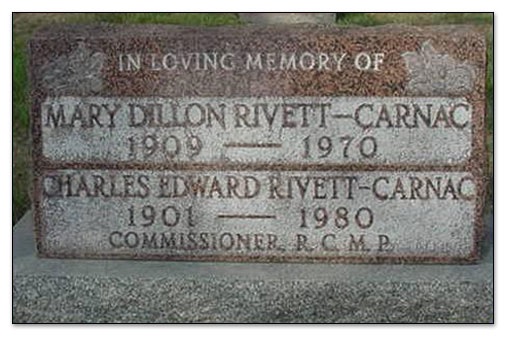
List of controversies involving the Royal Canadian Mounted Police
https://en.wikipedia.org/wiki/List_of_controversies_involving_the_Royal_Canadian_Mounted_Police
Palango, Paul. (1994). Above the Law. McClelland & Stewart. Toronto, Canada.
Rivett-Carnac, Charles. (1965). Pursuit in the Wilderness. Little Brown and Company. Toronto.

